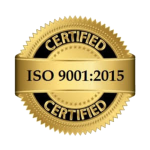

No Third-Party Application is One-App-Fits-All Solution
Multifarious software applications are available in the marketplace for all common business management needs such as HR, sales, CRM, and finance and accounting. However, no two businesses are exactly symmetrical in how they operate. This means all pre-defined applications available in the marketplace cover most common requirements but lack a few aspects that are unique to each organization.
In this scenario, the business leaders who aspire perfection, choose to conceptualize customized applications that will fulfill all and exact business needs. Additionally, the by-product is to overcome dependency on legacy apps that choke operations.
Sadly, oftentimes, conceptualizing that software application requirement is the easier part. The tougher part is to develop the application exactly how it was conceptualized. Mind you, outsourcing it to a third-party developer or building it with an in-house development team makes little difference in terms of cost, time, and hassle.
Solution? Low-code application development. It expedites processes by several times and is cost-efficient because there is no need for numerous resources of excellent software skillset.
Low Code App Development Gaining Momentum
A number of businesspeople have already bet on low-code application development which, as the category market, is already expanding at roughly 40% compound annual growth rate (CAGR) over the past few years, and is estimated to reach a substantial valuation of $21.2 billion by 2022.[1]
already expanding at roughly 40% compound annual growth rate (CAGR) over the past few years, and is estimated to reach a substantial valuation of $21.2 billion by 2022.[1]
In current times when digital transformation is the common top priority of most business executives, low-code development platforms pave the way to a strategy that accelerates end-to-end app development. It does so by replacing traditional program coding with visual and declarative techniques.
With low-code platforms, a user just has to worry about the components, different pages, and how to piece everything together. Drag-and-drop tools, ready-to-assemble components, and process modelling are a few features of low-code platforms that facilitates rapid prototyping and app delivery within days or weeks.
Moreover, low-code application development platforms bring CRUD (Create, Read, Update, and Delete) to the front end. This means a programmer can sketch visuals of a table and import data from a simple spreadsheet.
Note: Low code is not no code, which means there are options to insert own code to achieve specific customizations!
Oracle APEX, an Admirable Low Code Platform
Oracle Application Express (APEX) is a low-code application development platform that does not require coding experts to deliver beautiful, device-agnostic user interface (UI) enterprise apps with exceptional features. Moreover, Oracle App Express bears no additional cost to an organization as it comes inbuilt with an Oracle Database and ready for development.

Proof of Concept: Infolob has built its in-house time and expense application called TIMEX using the Oracle APEX.
Oracle APEX provides developers everything they need to build customized applications that solve actual business problems rather than wasting time trying to customize a 3rd party app, which will never be exactly what is needed, or changing business processes to fit an off-the-shelf solution.
3 Primary Attributes of Oracle Application Express
-
- Simplicity: Oracle APEX Application Builder is immensely user-friendly. It is learnable within a week or so. Its browser-based intuitive interface provides all necessary guidance to create applications and deploy them with limited coding knowledge. Plus, the resultant applications are lightweight and much cheaper than off-the-shelf software products. As an added bonus, because the application’s metadata is stored in your Oracle database, you will not need to worry about an additional backup/recovery scenarios.
APEX is among the leaders in the low-code application development marketplace because it aspires to simplify things at all layers. It eliminates mapping between relational and application objects, remote procedure call complexity, proliferation of database connections, middle-tier application logic, and complexities pertaining to maximum availability as well as disaster recovery.[2]
-
- Industry-agnostic: Businesses of all sizes and domains can use Oracle APEX to create applications that go external to engage customers or remain internal to support operations. Additionally, these applications can run everywhere from Oracle Cloud Infrastructure (OCI), on premise data center, or hybrid cloud.
APEX thrives on database CRUD methodology, and often the development begins with a spreadsheet or a data model. By directly leveraging database tables, Oracle App Express fits perfectly to all types of data structures and overcomes the complexity caused by the need to execute functions that hold, convert, interact, and maintain data flow between the database and the application. This feature aids to APEX lightweight too.
-
- Security: Oracle APEX comes with inbuilt APEX Advisor, which reports every error, malpractice, and other security vulnerabilities. Also, there are third-party tools available such as APEXSec that add extra robustness to application security.
Staying with security, it is important to note that every new version of Oracle APEX comes with upgrades that address last known security vulnerabilities, which makes it safe to say that the latest, Oracle APEX 20.1, is the most secure version. APEX is frequently used by classified agencies including the defense industry across the globe, besides every other line of business. Even inside Oracle, APEX is employed to create applications that handle most sensitive of information.[3]
Infolob at Your Service
Need help with Oracle products, low-code application development, or Oracle APEX? [email protected]
References
[1] Forbes.com/sites/tomtaulli/2019/02/17/what-you-need-to-know-about-the-low-code-market/
[2] Apex.oracle.com/en/platform/why-oracle-apex/
[3] Joelkallman.blogspot.com/2016/01/is-oracle-application-express-secure.html






